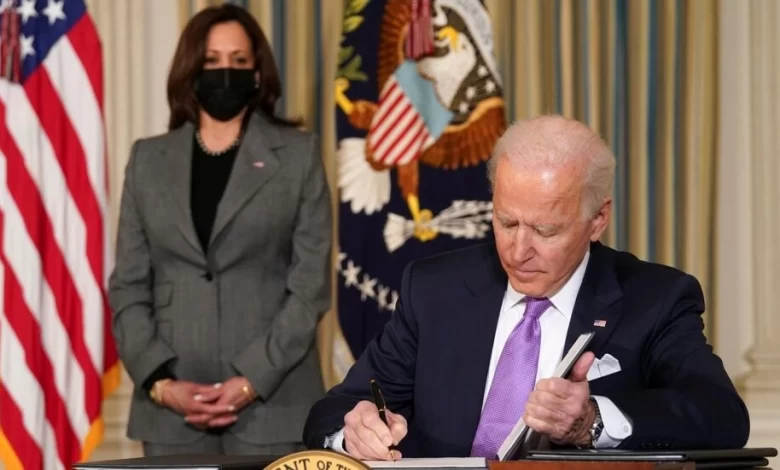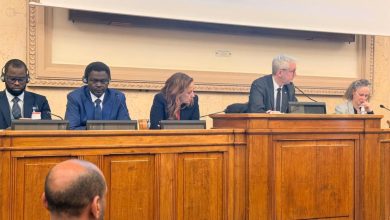Reports
Why did Biden announce a visit to Africa at this particular time?

By Dr. Badr Hassan Shafei
In July, the author raised a question in an article on Al Jazeera about why U.S. President Joe Biden had not visited Africa since he took office almost four years ago, especially after he had announced during the U.S.-Africa summit in December 2022 his intention to visit the continent, without specifying a date or destination.
This question arose due to the decline in U.S. influence in the region, especially compared to Russia, particularly in the Sahel, where Niger, for instance, requested the withdrawal of U.S. forces (which has been completed), Chad called for a review of military agreements with Washington, and the U.S. continues to search for alternative military bases (such as in Côte d’Ivoire) and a new African headquarters for its AFRICOM command. Criticism of U.S. support for Israel in the Gaza conflict has also been growing among African nations.
Recently, U.S. sources confirmed that Biden, stepping down from the presidential race, plans to visit Angola in the coming weeks, fulfilling his promise to become the first U.S. president to visit Sub-Saharan Africa since his predecessor, Barack Obama.
The visit is expected to occur after the UN General Assembly meetings and before the U.S. presidential elections in November.
These announcements coincided with the U.S. Ambassador to the UN’s statement supporting the establishment of two permanent seats for African countries on the UN Security Council, reiterating Biden’s previous remarks at the U.S.-Africa summit about the importance of Africa’s representation in global governance.
Why Now?
Several objectives can explain the timing of Biden’s announcement:
Improving U.S. Image in Africa: The U.S. has been criticized for interfering in African nations’ internal affairs under the pretext of promoting democracy, unlike China and Russia. This led to African countries like Niger and Chad demanding a reevaluation of their security ties with Washington. The U.S. under Trump further alienated the continent, leaving space for Russia and China to expand their influence, whether through soft diplomacy or military means (like Russia’s Wagner Group).
Securing African Support in Global Arenas: After the Russia-Ukraine war, African countries were divided on their stance, with many seeing the U.S. as solely pursuing its interests, while Russia offered incentives like free grain exports. This division was evident in the UN, where nearly half of African countries, including Tanzania, abstained from voting on the Ukraine crisis, despite U.S. efforts to rally support.
Seeking African Support on Gaza: Biden aims to garner support for U.S. positions on Gaza, amid widespread African rejection of the war and strong support for Palestinian rights across the continent.
Appealing to African-American Voters: Domestically, Biden seeks to boost African-American voter turnout in favor of Kamala Harris in the upcoming election. Polls indicate a decline in support for Biden among this group, especially young voters in key states. To address this, the Biden administration allocated $16 billion to historically Black universities in the U.S. to regain support.
Implementing the New U.S. Africa Strategy: Announced two years ago, this strategy focuses on countering China’s influence and Russian disinformation in Africa, both of which have contributed to Russia’s narrative being accepted by many African nations, leading to non-alignment in forums like the UN. This is also why the U.S. established AFRICOM to counter Russian military influence, particularly through the Wagner Group.
Furthermore, Washington has aimed to increase infrastructure investment, hoping to build goodwill with African citizens, similar to China’s approach. The U.S. has launched initiatives like the “Partnership for Global Infrastructure and Investment,” and signed over 800 deals with 47 African nations since 2021, valued at over $18 billion.
Why Angola?
The focus on Angola in Biden’s upcoming visit can be attributed to several factors:
Strategic Location and Resources: Angola has a significant position on the Atlantic and is rich in resources, including oil, gas, diamonds, and rare minerals like cobalt and coltan. These resources are critical for advanced technological industries, making Angola a key player in the global supply chain for the U.S.
Reducing Russian Influence: Angola, the third-largest oil producer in Africa, had close ties with the Soviet Union, which supported its leadership during the civil war. Russia’s foreign minister visited Angola in early 2023, before Biden’s officials made their rounds.
Countering China: China has strong economic ties with Angola, particularly through its Belt and Road Initiative. The U.S. is keen to challenge China’s dominance by making investments like the $250 million Lobito Corridor railway project, which links Angola to Congo’s cobalt mines and Zambia’s copper belt.
Competing with China’s Belt and Road Initiative: Angola plays a key role in China’s Belt and Road Initiative due to its strategic maritime and land position, serving as a major gateway for Chinese goods to Africa and a hub for exporting rare resources like cobalt and coltan. Angola is also one of China’s top five oil suppliers, and China is its largest trading partner, with trade exceeding $120 billion since 2010. Chinese companies, numbering around 400, are heavily involved in Angola, especially in infrastructure development, often bartering investments for oil.
Given this, it’s no surprise that Washington seeks to establish a foothold in Angola. The U.S. announced a $250 million investment in the Lobito Corridor Atlantic Railway project, linking Angola with the Democratic Republic of Congo’s cobalt mines and Zambia’s copper belt. In August, Washington aimed to extend this railway to the Indian Ocean via Tanzania, reflecting its broader strategy to counter China’s influence.
This also explains why Kamala Harris visited Tanzania and Zambia during her first trip to Africa in March 2023, highlighting the U.S. effort to build alliances across Africa, particularly in regions with abundant resources essential to advanced technologies.
Conclusion:
Biden’s planned visit to Africa, particularly to Angola, comes at a critical time. It reflects a multifaceted strategy: to improve the U.S.’s standing in Africa after a period of declining influence, counter Russian and Chinese influence on the continent, secure African support in international forums like the UN, and strengthen domestic support from African-American voters. Angola, with its rich natural resources and strategic location, is emerging as a key battleground in this geopolitical competition.
Through investments in infrastructure, promises of economic cooperation, and diplomatic engagement, the U.S. is trying to reshape its relationship with Africa, focusing not only on political and military ties but also on economic and cultural connections. Whether these efforts will succeed, especially in the face of strong Chinese and Russian influence, remains to be seen, but Biden’s visit underscores the growing importance of Africa in global politics.



